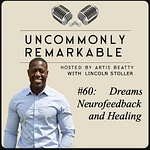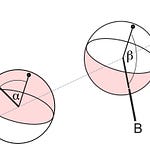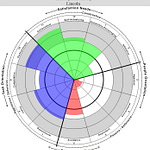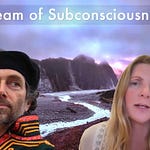“Chronic stress may lead to hypothalamic–pituitary–adrenal axis and autonomic nervous system disruption… priming the brain to be vulnerable to anxiety disorders.”
— Eunsoo Won and Yong-Ku Kim (2020)“Chronic inflammation is an essential component of chronic diseases.”
— Yun-Zi Liu et al. (2017)
Anxiety is the mental aspect of stress. A number of things happen when one’s body is under stress. Some of the most notable changes are hormonal, vascular, and muscular. Increased muscle tension, blood pressure, and the release of cortisol, a hormone that increases blood sugar and suppresses digestion and the immune system.
The body is constantly going in and out of balance. Our body expects us to resolve our stress but in a hostile environment the pressures may never abate. The consequences of chronic stress differ with each person, but over the long term stress degrades your health. Here is a list of chronic conditions linked to stress:
Anger, frustration, and hostility
Arthritis
Asthma
Autoimmune diseases
Cardiovascular disease
Chemical and behavioral addictions
Cognitive and executive impairment
Depression
Diabetes
Fatigue
Gastrointestinal disease
Headaches
Insomnia
Obesity
Skin diseases
The mind is a vague thing that grades into our bodies along an uncertain boundary. There is much to be discovered if you develop the ability to communicate across the boundary. The question is how? It's more than just paying attention and adopting healthy habits.
Thoughts and Motivation
Cognitive therapy or coaching focuses on your reasons for doing things. Reasoning is supposed to be objective so that it frees us from our basic instincts. This gives us a measure of impartiality, allowing us to better judge the world and respond to external forces, or so we claim.
We work to understand the world but we still have limited control over our bodies. If we want to gain more control over or play a greater role in our body’s functions we need to become both more sensitive to it, and develop ways to affect it at a deeper level, by which I mean metabolically.
Most of us think we control our reasons and our reasons motivate us. This supports us in believing that we control our actions. But it’s been verified that our reasons actually follow our actions, or the neural impulses that signal our thoughts follow the neural impulses that govern our actions. This creates the “user illusion” in which we always see an action that is preceded by a reason, and so think we are in control, when, in fact, we act before we think, and the actions are controlled by our emotions.
Feelings and Control
Our feelings and compulsions motivate us, and we make up reasons to justify them. We have little control over our feelings but still make decisions we think are reasonable. Mental stress comes as the difference between what we can reasonably achieve and what we want.
While it feels good to believe we’re in control of our lives, this deception results in being insensitive to aspects of our health. Underneath all reason is desire, and while we can justify our desires, we can neither explain nor deny them.
Your health is strongly influenced by your feelings and as long as you claim to control your feelings, which you don’t, you don’t control important aspects of your health. You can influence your feelings but it’s not the control you might claim.
Think of your feelings as a separate emotional person who occupies the same space that you do, lives life simultaneously with you, but operates at a lower metabolic level that you cannot see.
Somehow, this emotional person controls your feelings but you cannot see it happening. You’re vaguely aware of this person and they rarely speak to you. It’s as if they operate from behind you, so that whenever you turn around to confront them, they are behind you again. But, whenever you utter a curse, that’s them talking.
You cannot address your emotional self logically because your emotional self does not use logic. Its version of thinking doesn’t use words but memories, associations, reflexes, and habits similar to the logic of a dream.
By exploring different states of mind, what I call altered state work, you start to see motivations form and, perhaps, develop an ability to influence your actions. What we call lucid dreaming is really becoming consciously involved in your process of emotional thinking. Waking up inside a dream is the same as becoming rational in an emotional and illogical world.
The benefits of altered state work are perceiving more of what’s happening in your body, gaining a greater ability to follow the patchwork of your emotions, and having a greater influence over your mind and body’s function.
Hypnosis and Altered States
Hypnosis is one of many altered states. Other forms include dreamwork, guided visualization, extreme physical activity, meditation, and psychedelics. But hypnosis has the benefit of including a protocol of structured assistance called hypnotherapy. Hypnotherapy uses altered states to gain control over one’s mental health.
As altered state work becomes more accepted, hypnotherapy will also. At present, and ever since the hypnotic state was recognized in modern times, hypnosis has been considered strange and of limited use. It is strange but it’s used whenever there is an appeal to your emotions.
Despite its ubiquitous presence, hypnosis is disdained by those who believe rational thinking is king. The great success of science and medicine has spawned the field of academic psychology which views the mind as a logical machine. Given humans' illogical behavior, this is an unjustified assumption.
Academic psychology mostly exists to limit social behavior, not to expand people’s minds. This doesn’t have to be the case, but that’s been its historical function. Altered state work, on the other hand, is intrinsically mind expanding, so the antipathy between hypnotic and academic states of mind is to be expected.
Outside of psychology, we have always recognized the benefit of approaching problems in altered states. We’re in an altered state whenever we engage in doing exceptional things, such as aggression, combat, sex, love, grief, intoxication, ceremony, athletics, sleep, performance, creativity, and dreams. All of these, when they develop to a consuming extent, are altered states.
The only states of mind that might be considered not altered are rote learning, rule following, indifference, gullible ignorance, and naïve trust. Given the obvious importance of altered states you would think they’d be of major concern, but they are barely recognized. Instead, the different behaviors are seen as distinct and treated as if they had little in common.
The common aspects of altered states might now be recognized with the renaissance of psychedelic assisted psychotherapy. Most likely most people will miss the opportunity while only a few people will argue that altered states constitute an important and overlooked field.
The key in therapeutic altered state work is to bridge the gap between reason and emotion. More specifically, to bring together your rational and nonrational thinking processes. Here nonrational means thinking that’s based on things other than reason, such as perception, memory, experience, and association.
Nonrational does not mean irrational or defective, nonrational is just another way of thinking. As I mentioned, our emotional thoughts are nonrational, and they are the basis for all our actions.
If you’d like to learn how to see yourself clearly, to heal, create, or grow, then schedule a free call:
Listen to this episode with a 7-day free trial
Subscribe to Stream of Subconsciousness to listen to this post and get 7 days of free access to the full post archives.













